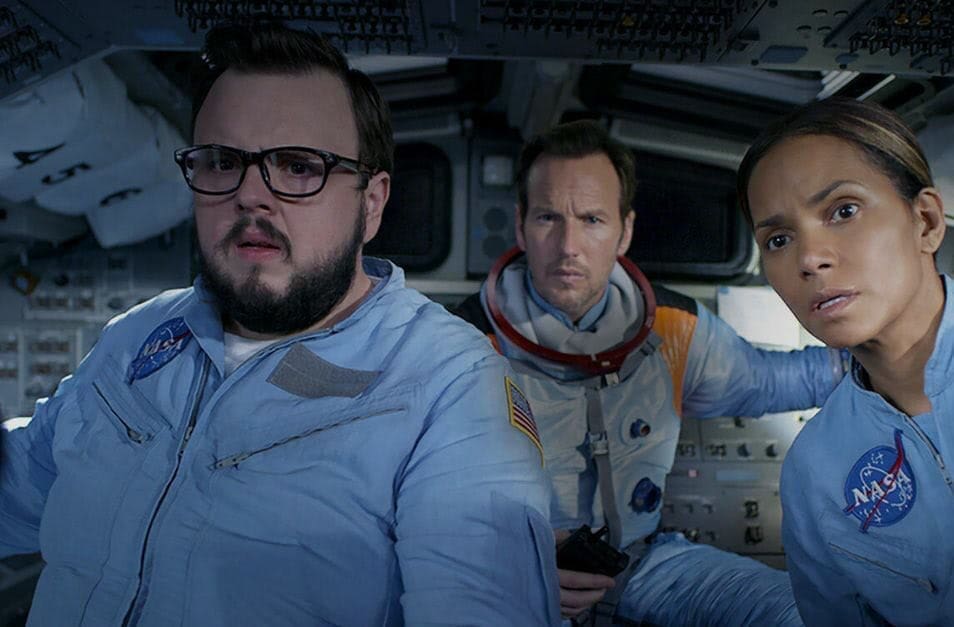History has a way of being skewed or shaped based on word of mouth and biased opinions designed to prop up or tear down the figure being discussed. Fortunately for Martin Luther King Jr., he had the F.B.I. cataloging his every move with great detail. Which is how the events leading up to SELMA are communicated so vividly to us in addition to the many personal accounts of that pivotal year for civil rights.
In Selma, directed by Ava DuVernay, Martin Luther King Jr. (David Oyelowo) is preparing a trip to Selma, Alabama in 1964 after unsuccessfully convincing President Johnson (Tom Wilkinson) to agree to present legislation that would make it illegal to refuse service to anyone on the basis of discrimination. The most particular aspect being the right to vote; which was legal for African Americans, but not enforced by Governor George Wallace (Tim Roth). The county registrars in his state deny any applicants of color; and law enforcement intimidates anyone that protests for that cause. Dr. King gathers his closest constituents and proceeds to organize a rally to the steps of the county registrar, which is promptly shut down by Sheriff Jim Clark. None of this is headline news, but the information is relayed to the president by J. Edgar Hoover (Dylan Baker) and Chief of Staff Lee C. White (Giovanni Ribisi). President Johnson allows J. Edgar to use methods necessary to disrupt the protest occurring in Selma while he focuses on his own agenda for the country, but eventually the violence, prominently broadcast to the entire country and transmitted to rest of the world, leaves the president little option but to pay attention.
Dr. King’s oratory skills are well demonstrated in this movie as he convinces his audience to remain patient and non-violent in the face of so much rage and animosity. His wife Coretta (Carmen Ejogo) remains at home taking care of her kids and avoiding troubling death threats on the phone. While the violent nature of Selma’s racial tension is finally shown to the world, Dr. King makes a call to action to members of faith and this draws in a larger, more diverse crowd to the cause. Priest, nuns, and anyone else inspired to support humanity in Alabama or wherever it needs help. The black community is determined to make their voices heard and, with their growing support, attempt to make their way over the Edmund Pettus Bridge and on to the capitol building in Montgomery. Even as the turmoil unfolds, Dr. King is not steadfast in his actions but rather adjusts his methods to hopefully curtail further bloodshed.
The march is 50 miles long and suffers a few setbacks before its success. One of them being a court proceeding to get judicial approval to conduct the march in the first place. Dr. King is committed to achieving the goals of the community peacefully and legally. Governor Wallace prefers the traditional values of segregation and this only strengthens both sides of the argument to stand their ground. Luckily common sense and a more rational union of citizens glued to their television sets and witnessing the sacrifices of the many people in Selma paves the way for action in Washington.
David Oyelowo does an amazing job portraying such an iconic figure in American history. His mannerisms and delivery of the speeches throughout the movie draws you into this moment in time. There is an emotional resonance when you see unprovoked violence heaped upon someone because of their race, creed, or orientation. Oyelowo absorbs all these emotions and translates them in such a compelling way that you are drawn to each word, looking for guidance in all this madness. Another good performance is from Stephan James as John Lewis, a young activist fully supportive of Dr. King’s work. James demonstrates well the real tragedy John Lewis suffered prior to the events in Selma with voter registration. A strength of will that is difficult to comprehend fully for most people, but this movie explores that pain and communicates it well. I should also mention Tom Wilkinson as President Lyndon Johnson. He successfully balances the support Johnson has for civil rights with Johnson’s beliefs that Congress would not be so receptive to any further change in legislation. Giving blacks more protection to vote and practice their rights as citizens. The aggravation in his face is evident, but as time wears on and a quiet protest becomes a global story the president increases his efforts to convince Congress to make the right decision.
Selma is not a perfect movie, but it is an excellent window into the heart of a difficult and tense situation that we all would hope to avoid repeating. I recommend it not just for the lesson in the fight for humanity, because there are documentaries and books on this subject that cover it just as well if not better, but also for David Oyelowo’s performance. This is Ava DuVernay’s first theatrical film and she does a remarkable job drawing out the sincerity in her actors. Her collaboration on this film and the contributions of everyone involved make this more than just a so-so biopic. A movement that took place 50 years ago can still touch audiences today.
SELMA:[usr 4.5]
About SELMA
Synopsis: A chronicle of Dr. Martin Luther King, Jr.’s campaign to secure equal voting rights via an epic march from Selma to Montgomery, Alabama in 1965.
Directors: Ava DuVernay
Writers: Paul Webb
Stars: David Oyelowo, Cuba Gooding Jr., Oprah Winfrey, Tim Roth, Tom Wilkinson, Giovanni Ribisi, Carmen Ejogo, Martin Sheen, Lorraine Toussaint, Common
Rated: PG-13
Runtime: 127 Minutes
Opens: January 9, 2015





























